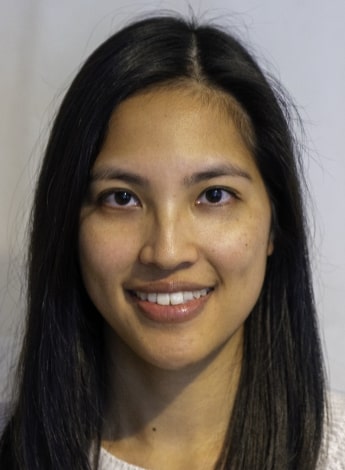
Charting a course through Parkinson’s disease

Early career researcher Cassandra Wong has received a Seeding Grant to investigate how Parkinson’s disease patients access physiotherapy services and why.
Parkinson’s disease (PD) is a progressive neurological condition that affects almost 200,000 people in Australia, around 80 per cent aged 65 and over.
Symptoms such as tremors, slow movements and/or rigidity appear when the brain is unable to make enough dopamine to control movement.
University of Sydney PhD student Cassandra Wong is studying the use of allied health including physiotherapy, occupational therapy and speech pathology by patients with PD.
Allied health services are currently under-utilised despite evidence and guidelines supporting early referral.
‘We know that allied health has many benefits for people with PD but they are not seeking it out until they’re in the later stages of the disease, when it’s quite advanced, even though it can be incredibly helpful early on.
'We want to know why they aren’t reaching out earlier,’ Cassandra says.
She is keen to find out how people access allied health such as physiotherapy, occupational therapy and speech pathology—whether they go directly to an allied health provider or via a referral from their GP or neurologist.
She is also examining allied health referral patterns by physicians, including GPs, neurologists and movement disorder specialists caring for people with PD.
Finally, Cassandra is planning to use population-based data from the Australian Longitudinal Study on Women’s Health to determine what allied health services are used, when people start using them and whether that is associated with long-term care in hospitals or aged care facilities.
Cassandra was recently awarded a Physiotherapy Research Foundation Seeding Grant for an upcoming qualitative study that will focus on determining when people with PD are referred to allied health services and what triggers the referral.

Cassandra Wong.
The study will start with a brief questionnaire providing demographic and PD-related questions, followed by two interviews held two weeks apart.
The first interview will focus on an overview of a participant’s PD journey to date, including diagnosis and the healthcare professionals they have seen.
In the period between the two interviews, participants and their carers will be asked to complete a PD diary, tracking the past course of the condition and identifying progression of symptoms and the involvement of healthcare professionals in their care.
In the second interview, the diary will be explored in depth.
‘The diary is basically a big table where the participants chart out what symptoms they had and when, when medications changed, when they had medical appointments and when they’ve seen different disciplines of allied health.
'We will also look at their level of physical activity or exercise and if it’s changed in alignment with the progression of their symptoms,’ Cassandra says.
She is planning to enrol about 30 patients at various stages of disease, with a mix of genders, metropolitan and regional
patients, and public and private patients as well as people with cultural and linguistic diversity.
It’s expected to take 12–18 months to complete the study.
Cassandra hopes that this study, along with another in which GPs, neurologists and nurses working with people with PD will be interviewed, will tease out the triggers, barriers and enablers for accessing allied health services.
Ultimately, she’d like to develop an integrated, consistent, evidence-based clinical pathway for people with PD and their carers, doctors and clinicians to follow, which would guide them on when to consider allied health support.
‘This study will strengthen the body of work we have on the importance of the role of physiotherapists in treating Parkinson’s disease,’ Cassandra says.
>> Cassandra Wong APAM, from The University of Sydney, received an $11,915 PRF Seeding Grant for 'Charting the course of Parkinson’s disease and referral to allied health: Insights from people with Parkinson’s disease'.
© Copyright 2024 by Australian Physiotherapy Association. All rights reserved.





